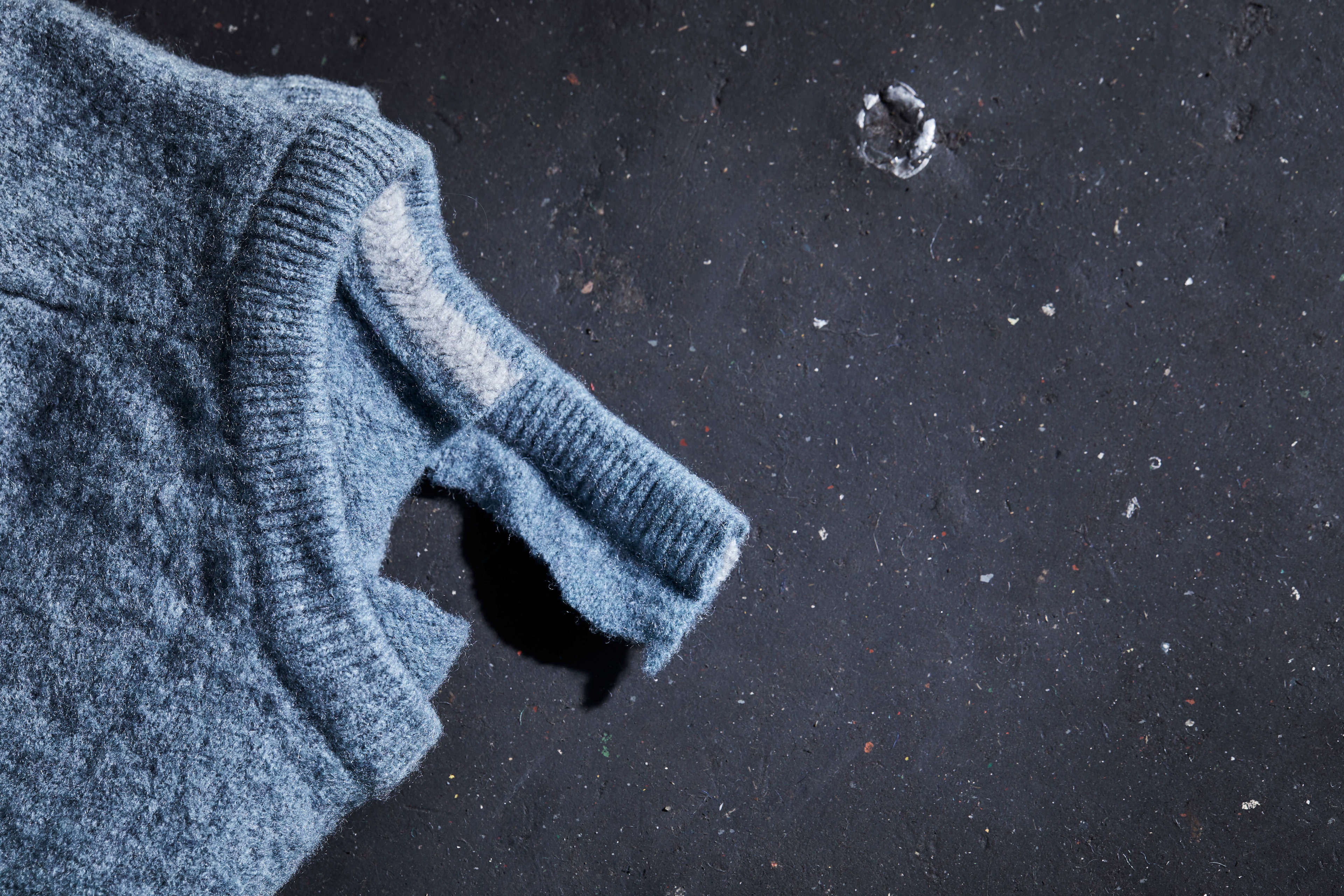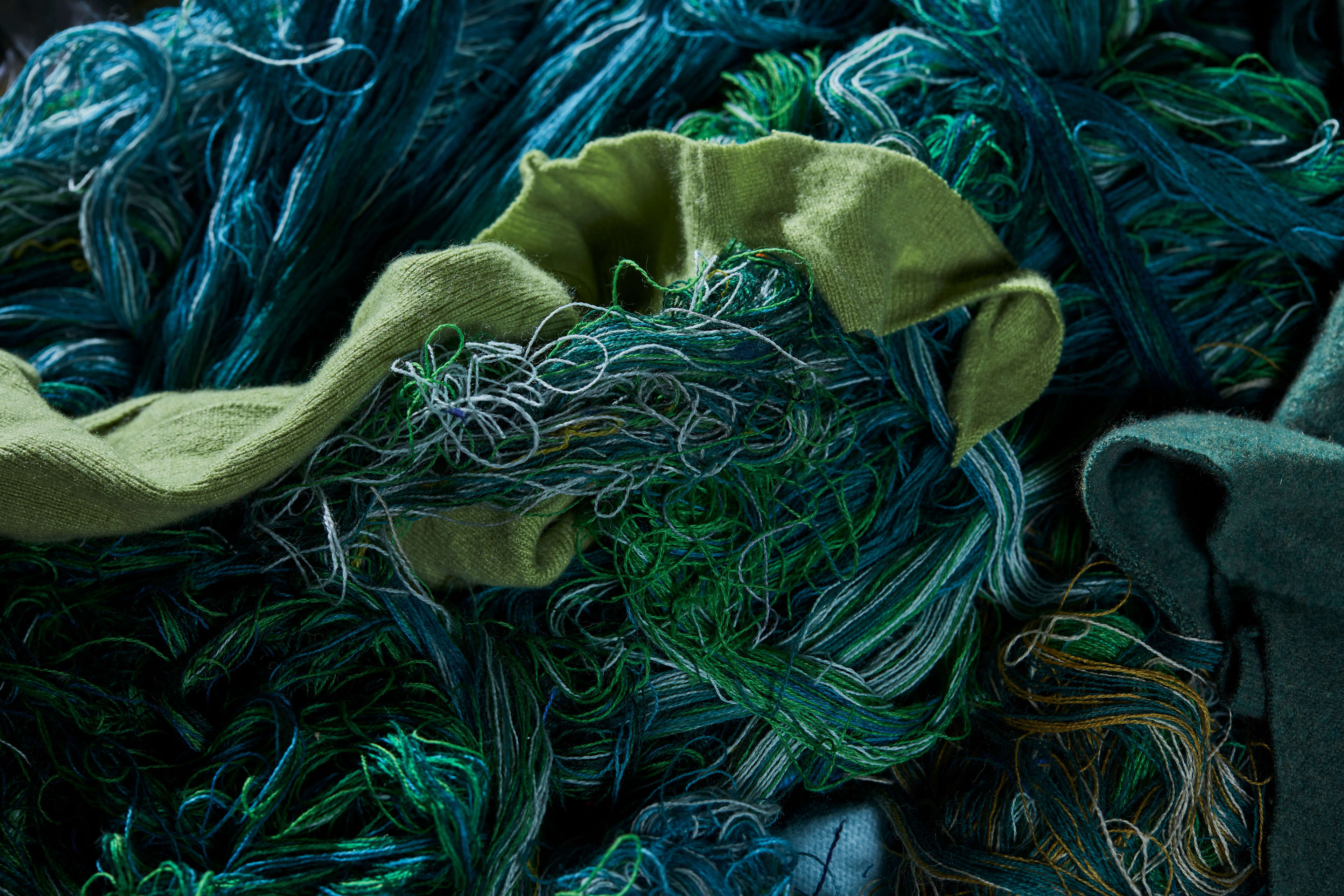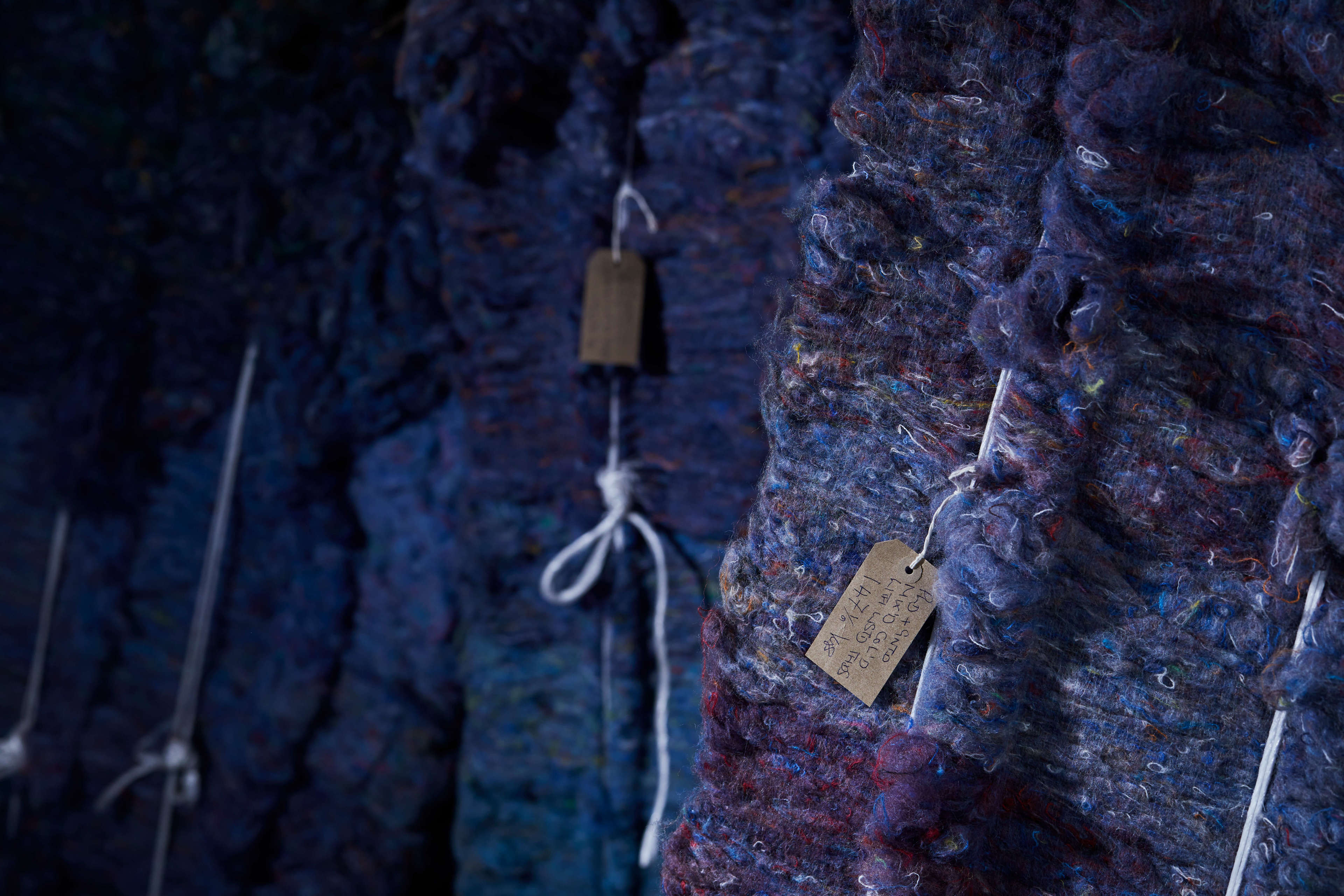
Textile Circularity
The textile industry has a poor reputation globally, for irresponsible production, excess waste, use of man-made petrochemical synthetics and poor social practices.
We aim to demonstrate an alternative model which is based on circular economy and regenerative principles, aiming to lead our industry in circular, sustainable practices.
To do that we need to consume and produce responsibly, mitigate and adapt to climate change, work collaboratively to progress, and maintain a healthy, contented and productive workforce.
You can read more about what we're doing in these areas in our Sustainability pages, but let's look at our circular design and manufacturing initiatives - our recycled and bio-based products - not forgetting our knitted components are both recycled and designed for dis-assembly and take-back.
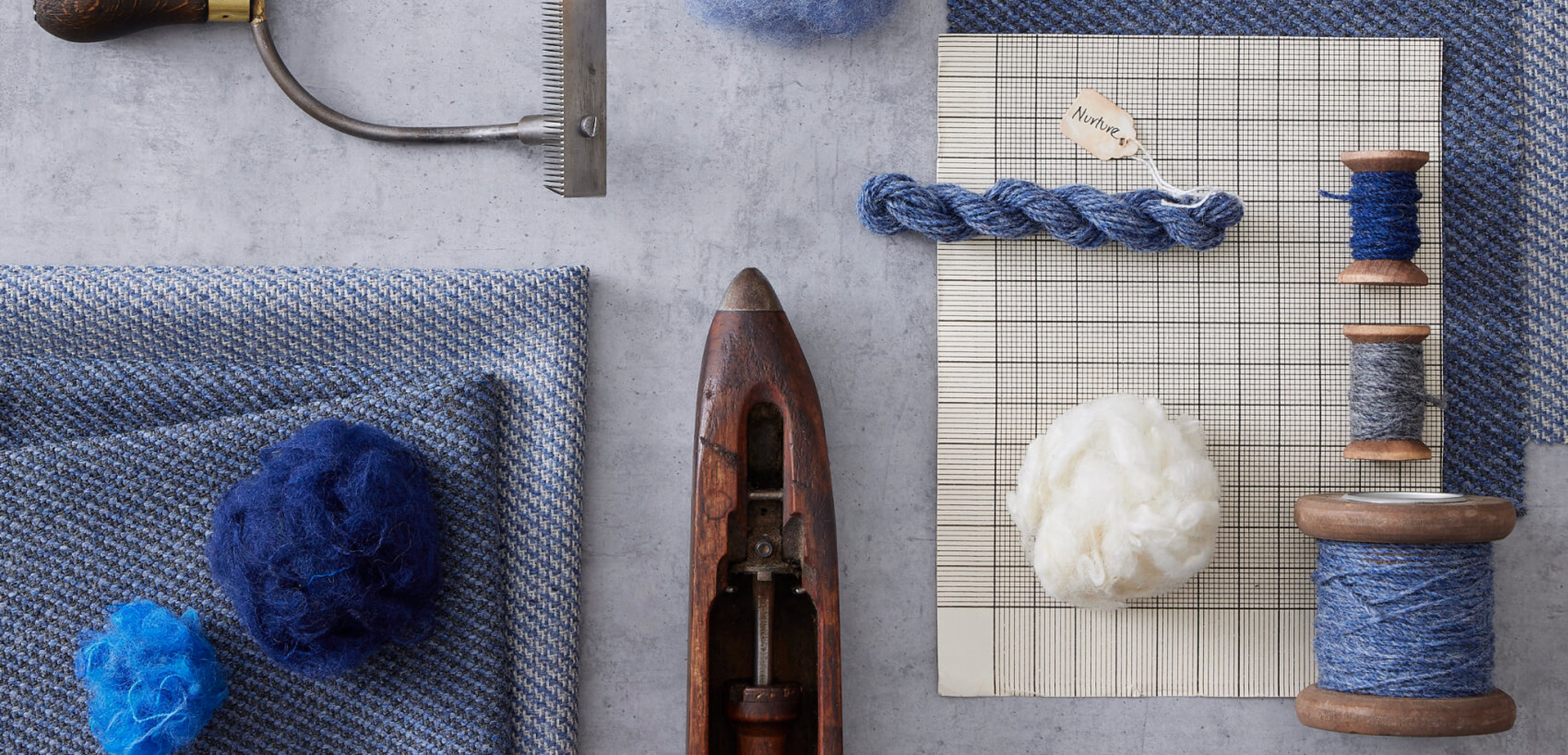
Our iinouiio wool recycling capability is a genuine industry breakthrough in textile circularity.
Reimagining the art of wool shoddy manufacturing for the modern-day sustainable age. In 2022, we invested in state-of-the-art wool recycling machinery, allowing us to re-purpose our own waste yarn and yarn and fabric, which is pulled back to raw fiber, then carded, spun and woven into new fabric to be enjoyed all over again.
Our first change-making, industry-shaking fabric using this circular technology is Revolution, which opens the door to a new, exciting era of textile sustainability, in which we will not only recycle our own textile waste into new products but provide recycling and take-back services to the wider textile and furniture industries. We’re also an active partner in a £4 million UK government-funded project called ACT (Autosort Textile Accelerator) which will allow automatic identification of raw material types to speed up the initial sorting of textiles for increased recycling and reduced waste to landfill.
Pioneering textile design and development
Our circular design principles have actually been embedded in our business for over a generation and we led the market with the introduction of recycled fabrics as long ago as the 1990s: we began with ReSKU, a recycled wool fabric made from recycled army jumpers, quickly followed by our first recycled polyester fabrics made from post-industrial and post-consumer plastic.
In the past 25 years, we estimate that we have saved over 750 million plastic bottles from landfills by using post-consumer recycled PET.
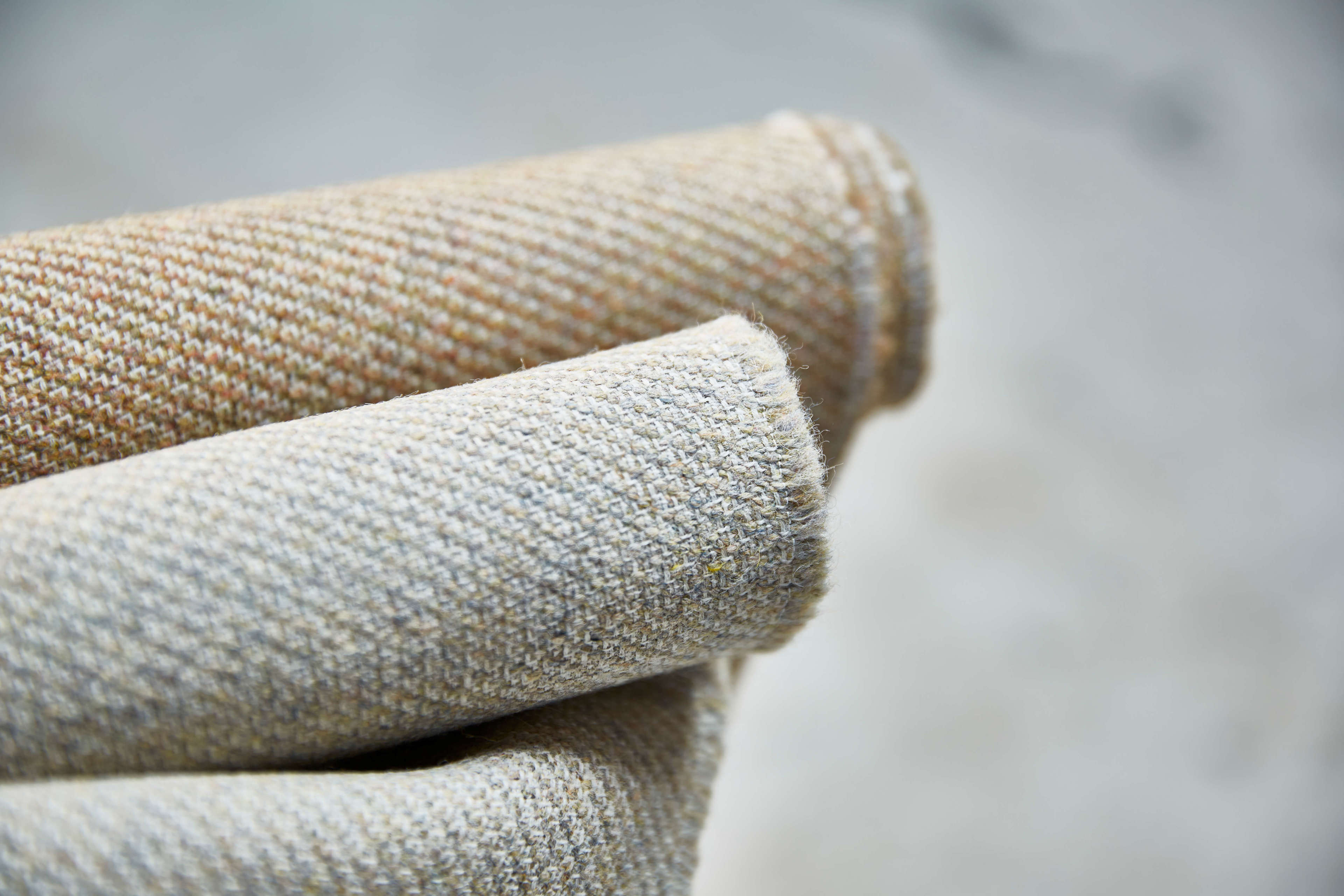
Along the way we also developed X2, a first to market closed loop recycled polyester, launched in 2012, using 25% of our own yarn waste upcycled into a black polyester yarn. And we were also first to market in our industry with open-line SEAQUAL fabrics, in partnership with the SEAQUAL Initiative, helping to highlight and combat the problem of marine plastic pollution.
Our award-winning Oceanic and Quest fabrics were introduced during the pandemic years, capturing the public’s imagination and focusing attention on the problem of ocean plastic waste and its threat to our marine eco-systems. We also use SEAQUAL in our Camira Knit fabrics, which are knit to fit the exact dimensions of furniture, designed for dis-assembly and are totally zero waste.
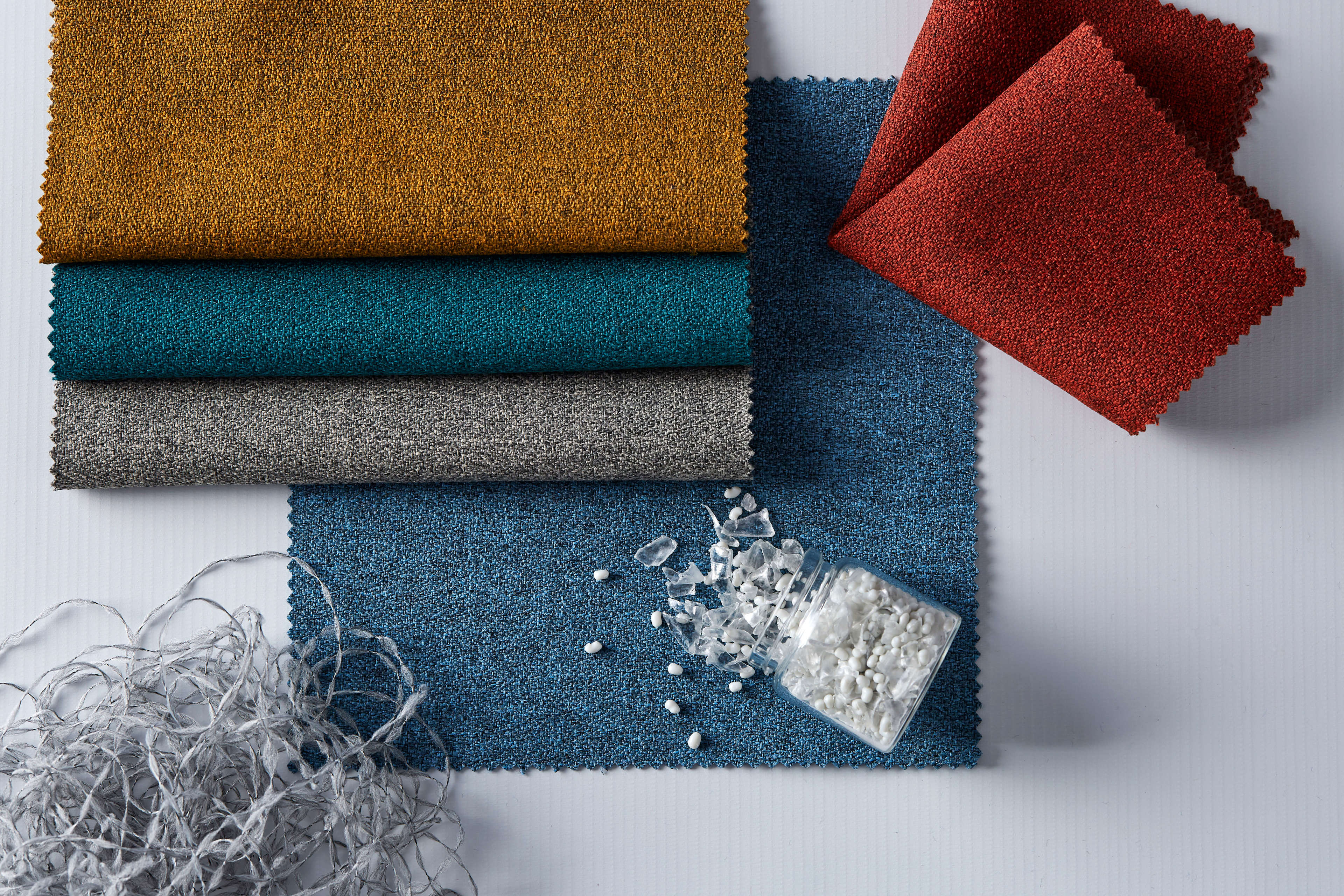
Isn't it just recycling?
Circularity isn’t just about recycling… There is a whole biological cycle of natural and renewable raw materials. Of course we love wool – mother nature’s miracle fiber – but we have also innovated a totally new category of natural plant fibers, made from harvested “bast” fiber plants such as nettles, hemp, flax and jute. Our journey to becoming industry leader in plant based textiles began with the acclaimed STING project (Sustainable Technology in Nettle Growing) which was a four year research and development project with De Montfort University to make a sustainable fabric from nettles launched in 2008.
The project involved growing crops from high-fibre nettle clones, understanding decortication techniques and optimum fiber blends for technical performance. The revelatory discovery was the inherent flammability of bast fiber fabrics, meeting the higher-level UK contract standard, without added chemicals. This remains a core USP of our fabrics made from nettles, hemp and flax.

